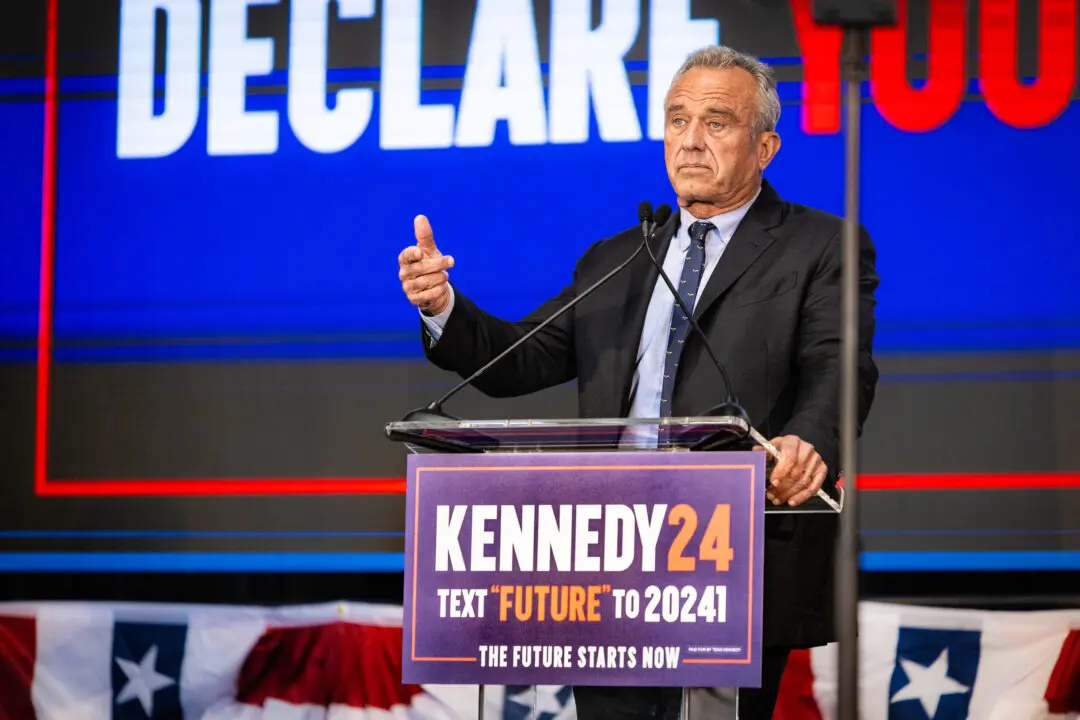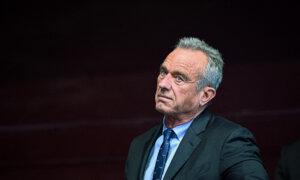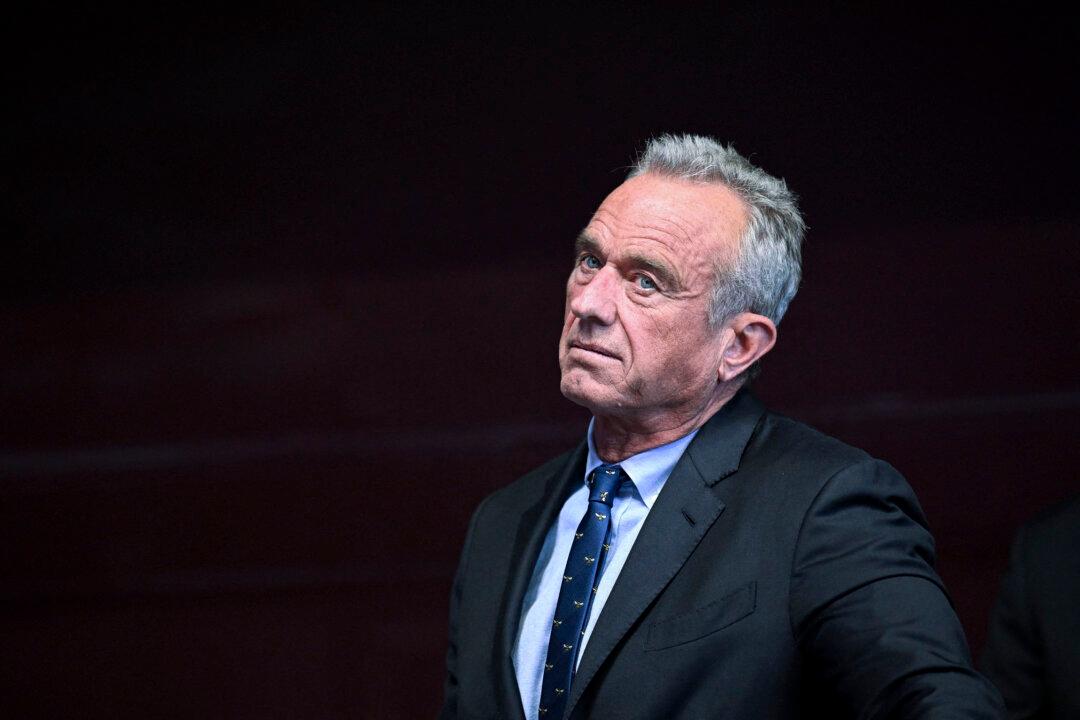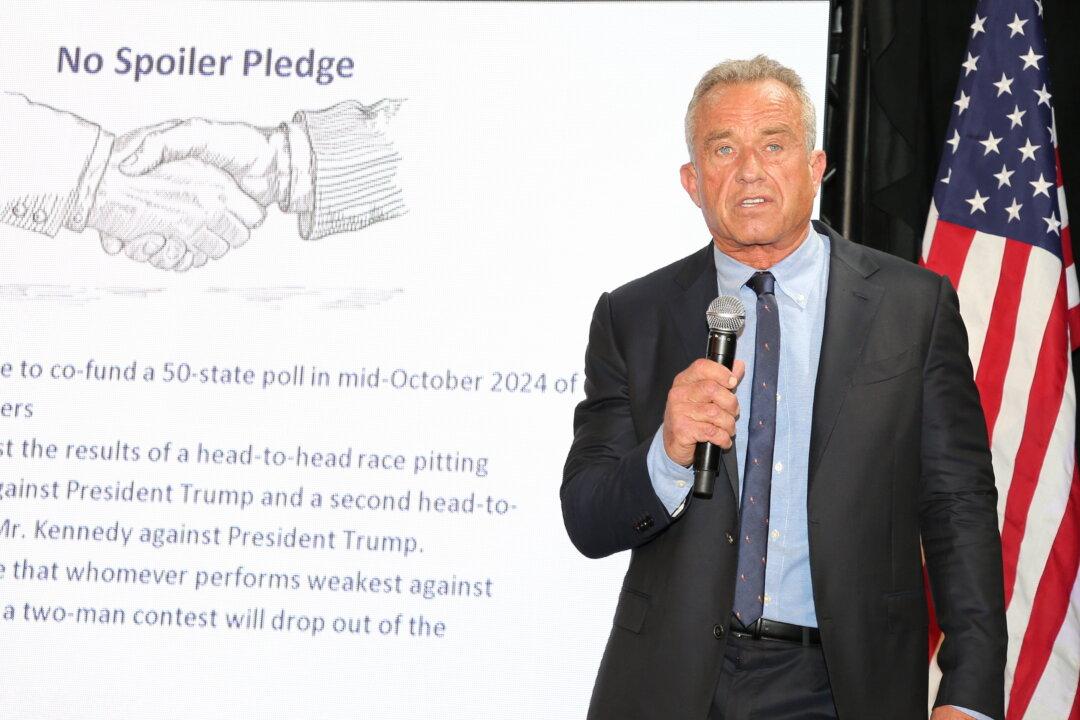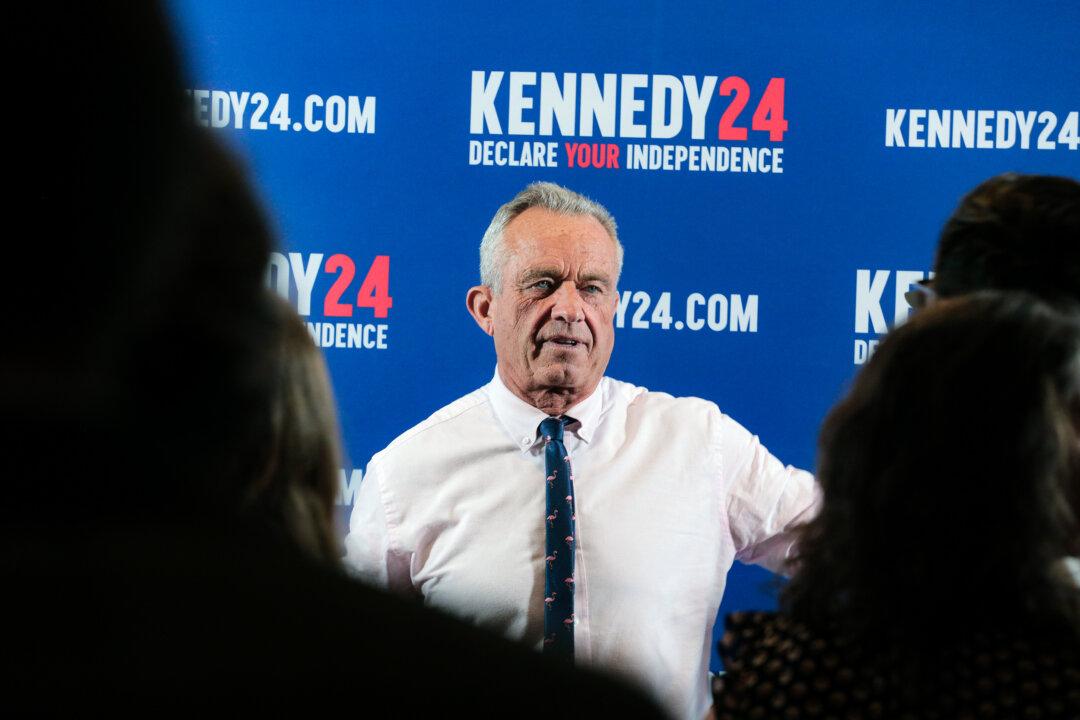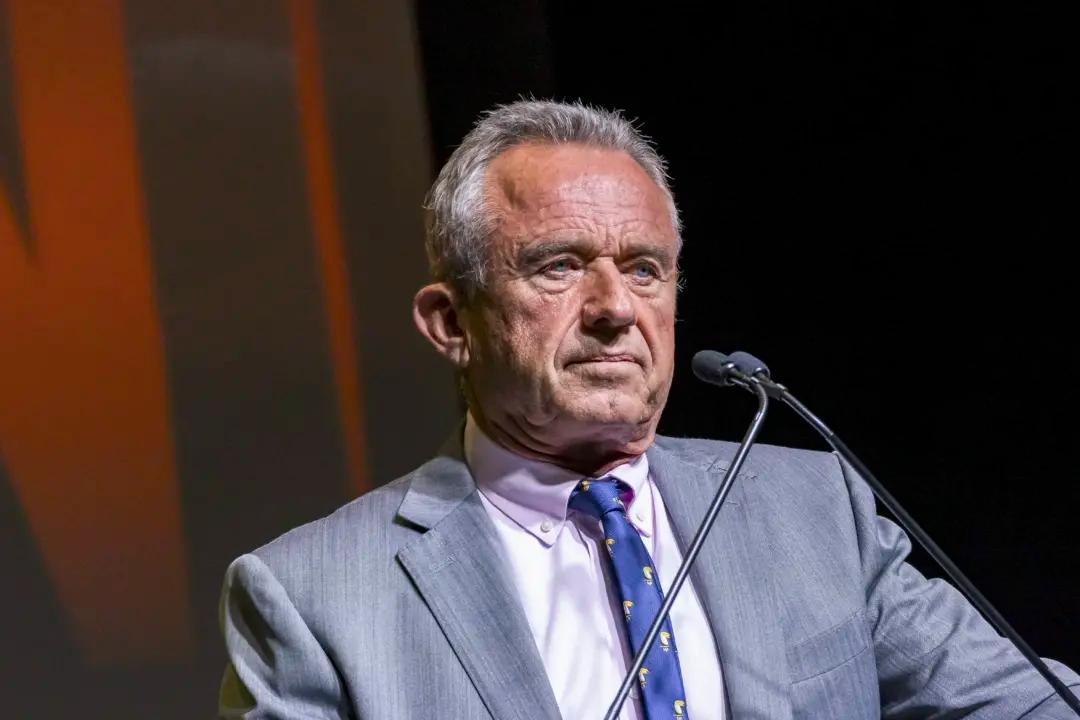ROYAL OAK, Mich.—Presidential candidate Robert F. Kennedy Jr. said he would put the federal budget on blockchain—reflecting a key part of his campaign platform vowing to end what he calls the corporate capture of government agencies.
Americans can currently monitor federal spending by reviewing congressional legislation.
The Government Accountability Office frequently audits federal departments.
Mr. Kennedy said he believes that placing every federal budget item on blockchain would enhance transparency.
“I’m going to put the entire U.S. budget on blockchain so that every American can look at every budget item in the entire budget anytime they want 24 hours a day,” Mr. Kennedy said at a campaign event in suburban Detroit on April 21.
“We’re gonna have 300 million eyeballs on our budget, and if somebody is spending $16,000 for a toilet seat, everybody’s gonna know about it.”
The Office of Management and Budget issued a June 2024 deadline for federal agencies to digitize their records in December 2022, FedScoop reported.
Blockchain is a technology used by Bitcoin and other cryptocurrencies to track transactions.
A longtime advocate for cryptocurrencies, Mr. Kennedy has accepted campaign donations in Bitcoin and has called himself the only “pro-crypto” candidate in the 2024 presidential race.
An analysis by the grassroots nonprofit Stand With Crypto rates Mr. Kennedy as “strongly supportive of crypto,” while President Donald Trump is rated “supportive” and President Joe Biden is rated “against” it.
In April 2023, Mr. Kennedy announced his candidacy to challenge President Biden for the 2024 Democratic Party nomination.
Claiming that the Democratic National Committee was “rigging the primary” so that no candidate could oppose President Biden, Mr. Kennedy decided to run as an independent in October 2023.
Mr. Kennedy has said that he plans to back the U.S. dollar with Bitcoin but opposes a central bank digital currency (CBDC), which would create a new currency controlled by the Federal Reserve.
CBDCs could eliminate cash currencies and give governments full control over citizens’ financial transactions, he has warned.
Former President Trump has said that he is against a CBDC because it would give the government power over Americans’ digital spending.
In March 2022, President Biden signed an executive order instructing the federal government to research potential uses and regulations for cryptocurrencies and the creation of a “U.S. Central Bank Digital Currency.”
“My administration places the highest urgency on research and development efforts into the potential design and deployment options of a United States CBDC,” President Biden wrote in the executive order.
The central bank will not develop a CBDC without authorization from Congress, according to Fed Chair Jerome Powell.
On the campaign trail, Mr. Kennedy consistently talks about his intention to fight what he deems corporate corruption and the capture of federal agencies.
“Members of both American political parties want to ban Bitcoin,“ he said. ”The reason those politicians want it banned is because they’re under the influence of BlackRock, JPMorgan, and other globalist financial institutions that are making money on inflation due to the Fed printing so much money. But the American middle class is getting rolled.”
Mr. Kennedy has promised that if he is elected president, he will keep Bitcoin available to the public “as a hedge against inflation and to preserve transactional freedom.”
“We don’t want the government to digitalize currencies, because it can use that power to control our freedoms, just like the Canadian government did when it froze the bank accounts of the truckers who were protesting government policy,“ he said.”
“Bitcoin can help maintain transactional freedom in the United States.”
Mr. Kennedy has said that his interest in Bitcoin started during the trucker strike in Ottawa, Canada.
The Freedom Convoy, as it was called by organizers, was a series of protests and blockades staged by truckers over COVID-19 mandates and restrictions in 2022.
The truckers were exercising their right to peacefully protest and petition public officials “for very, very good reasons,” according to Mr. Kennedy.
“They were silenced and punished by the government in an extraordinary way,” he said.
“The government used surveillance techniques to determine their identities, to determine the license plates of their cars, and then close their bank accounts and deprive them of their access to their own money—without any charges being filed and without any conviction.
“It was done simply to silence them.
“If the government has the capacity to shut down your bank account, it has the capacity to enslave us.”
At a March 2024 cryptocurrency conference in Denver, Mr. Kennedy told attendees that “transactional freedom is as important as freedom of expression.”
CBDCs are a threat to Americans’ constitutional rights, he said.
At the April 21 rally, Mr. Kennedy also celebrated the confirmation from the Michigan secretary of state’s office that he will appear on the state’s presidential ballot this fall.
He was nominated by the Natural Law Party in the key battleground state narrowly won by President Biden in 2020.
Natural Law Party Chairman Doug Dern said in a statement that Mr. Kennedy is “the most qualified candidate in the modern-day history of America.”
